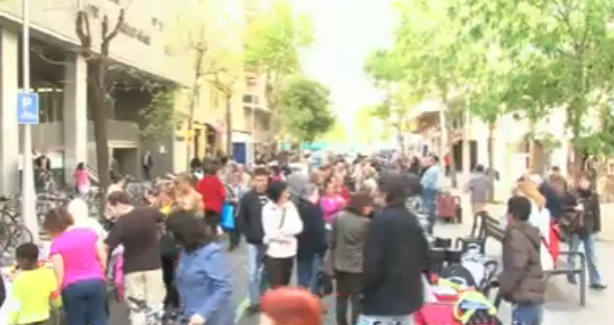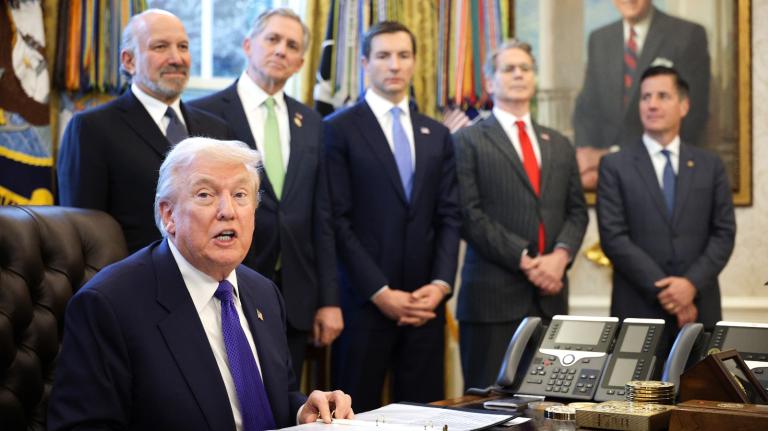Barter markets — where people bring stuff they don’t want and exchange it for stuff that other people don’t want — are like urban sustainability Swiss Army knives. It’s amazing how many things they can do.
They reduce the amount of expensive new crap people buy. They help folks clean out unwanted junk from their homes and keep it out of the waste stream. They create a lively public space. And they build community.
The only barter market I know of in the United States, the Really Really Free Market in the East Village (now defunct), was organized by anarchists, and had a political agenda that might have been off-putting to some.
But in Spain, at least, the custom is becoming more mainstream. That’s according to Kristen Dirksen of faircompanies, who made this nice little video about a Barcelona market. You can see that there’s a festival atmosphere as people of all ages gather to swap goods (wind chimes! romance novels! stuffed animals!) on a crowded street.
“You don’t need to shop,” explains one woman. “The only thing you have to do is look at home for things you don’t use at all. Online, you look up ‘exchange market’ and you’ll find every week an exchange market in every neighborhood.”
“It could be easier,” says a teenage girl. “But it’s more fun this way, and that’s the great part of it. It’s the joy of it.”
I first saw the video on The Pop-Up City, an online blog run by an Amsterdam-based design agency. Athina Arampatzi writes that the movement is spreading in Europe. She puts it in a global economic context:
As rapid globalization processes have set in motion a series of scalar transformations in economy, barter markets and swapping activities seem to provide alternate ways for local economies to maintain their balance. Most of the people involved in bartering highlight the major contribution of the ‘exchange-act’ in raising awareness over our normal consumption habits and the value of things. At the same time, the main idea behind swapping is the contribution of goods, or even people’s skills and services. Through the exchange part, people are presented with the opportunity to put back into circulation unused items, but also their own personal resources and assert, in this way, a certain degree of control over their personal economies.
Dave Roberts wrote a great piece about the exciting economic implications of the “sharing economy,” a broad category that includes carshare and bikeshare systems. There’s a huge spectrum here, although the internet frequently plays a role (that’s one way people organize the Barcelona markets).
What I especially love about this particular example is the face-to-face human interaction that you see in the video. The emotional and social value people are getting from the simple action of trading these humble objects with people in their neighborhoods is easily as great as the economic value.
It looks a lot more rewarding than buying something new in a mall.
Anyone know of other examples like this one? Leave them in the comments.




